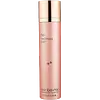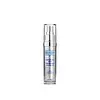What's inside
What's inside
 Key Ingredients
Key Ingredients

 Benefits
Benefits

 Concerns
Concerns

 Ingredients Side-by-side
Ingredients Side-by-side

Water
Skin ConditioningC13-15 Alkane
SolventPropanediol
SolventCaprylic/Capric Triglyceride
MaskingGlyceryl Stearate Citrate
EmollientLinoleic Acid
CleansingGlycerin
HumectantDimethicone
EmollientAlpha-Arbutin
AntioxidantArginine PCA
HumectantHydrolyzed Sodium Hyaluronate
Skin ConditioningBisabolol
MaskingCetearyl Alcohol
EmollientAcetyl Glycyl Beta-Alanine
Skin ConditioningHexylresorcinol
AntimicrobialTerminalia Ferdinandiana Fruit Extract
AntioxidantArtemisia Capillaris Flower Extract
Skin ConditioningDiglucosyl Gallic Acid
Pancratium Maritimum Extract
BleachingCeramide Ng
Skin ConditioningLinolenic Acid
CleansingBeta-Glucan
Skin ConditioningAlgin
MaskingTocopherol
AntioxidantButylene Glycol
HumectantEthylhexylglycerin
Skin ConditioningXanthan Gum
EmulsifyingCarbomer
Emulsion StabilisingSodium Phytate
Sodium Hydroxide
BufferingPhenoxyethanol
PreservativeBenzoic Acid
MaskingSorbic Acid
PreservativeCitric Acid
BufferingWater, C13-15 Alkane, Propanediol, Caprylic/Capric Triglyceride, Glyceryl Stearate Citrate, Linoleic Acid, Glycerin, Dimethicone, Alpha-Arbutin, Arginine PCA, Hydrolyzed Sodium Hyaluronate, Bisabolol, Cetearyl Alcohol, Acetyl Glycyl Beta-Alanine, Hexylresorcinol, Terminalia Ferdinandiana Fruit Extract, Artemisia Capillaris Flower Extract, Diglucosyl Gallic Acid, Pancratium Maritimum Extract, Ceramide Ng, Linolenic Acid, Beta-Glucan, Algin, Tocopherol, Butylene Glycol, Ethylhexylglycerin, Xanthan Gum, Carbomer, Sodium Phytate, Sodium Hydroxide, Phenoxyethanol, Benzoic Acid, Sorbic Acid, Citric Acid
 Reviews
Reviews

Ingredients Explained
These ingredients are found in both products.
Ingredients higher up in an ingredient list are typically present in a larger amount.
Ceramide NG is a type of Ceramide. The NG stands for a sphinganine base.
Ceramides are intercellular lipids naturally found in our skin that bonds dead skin cells together to create a barrier. They are known for their ability to hold water and thus are a great ingredient for dry skin.
Ceramides are an important building block for our skin barrier. A stronger barrier helps the skin look more firm and hydrated. By bolstering the skin ceramides act as a barrier against irritating ingredients. This can help with inflammation as well.
If you would like to eat ceramides, sweet potatoes contain a small amount.
Read more about other common types of ceramides here:
Ceramide AP
Ceramide EOP
Ceramide NP
Dimethicone is a type of synthetic silicone created from natural materials such as quartz.
What it does:
Dimethicone comes in different viscosities:
Depending on the viscosity, dimethicone has different properties.
Ingredients lists don't always show which type is used, so we recommend reaching out to the brand if you have questions about the viscosity.
This ingredient is unlikely to cause irritation because it does not get absorbed into skin. However, people with silicone allergies should be careful about using this ingredient.
Note: Dimethicone may contribute to pilling. This is because it is not oil or water soluble, so pilling may occur when layered with products. When mixed with heavy oils in a formula, the outcome is also quite greasy.
Learn more about DimethiconeLinoleic Acid is also known as Vitamin F. It is a fatty acid with emollient and skin conditioning properties. Our top layer of skin, or epidermis, contains high amounts of linoleic acid naturally.
Your body uses linoleic acid to build ceramides and prostaglandins. Ceramides keep your skin's barrier hydrated and strong while prosaglandins help control inflammation and healing. Needless to say, linoleic acid is crucial for having a strong skin barrier.
One study found applying linoleic acid rich sunflower oil to be more effective at repairing the skin barrier than oleic rich olive oil.
Linoleic acid is an essential fatty acid, meaning our bodies cannot create it on its own. We need to get linoleic acid through foods such as nuts and vegetable oils.
Acne-prone skin tends to have linoleic acid and high levels of oleic acid.
Linoleic acid can also help treat acne by softening sebum to prevent clogged pores. Another study found using 2.5% linoleic acid gel for 4 weeks showed a 25% reduction in small comedones.
This ingredient can also help lighten hyperpigmentation or sun spots by disrupting the melanin production process. It also helps your skin shed melanin pigment from your skin caused by UV exposure.
Due to its role in the production of the fatty acid prostaglandin, linoleic acid can also help reduce inflammation and support wound healing.
Linoleic acid is not always fungal-acne safe; it may trigger flare-ups in sensitive individuals.
Learn more about Linoleic AcidLinolenic Acid is also known as "ALA" or alpha-linolenic acid. It is a fatty acid used to hydrate skin and hair.
This ingredient can help with soothing irritated skin and reducing hyperpigmentation by disrupting the melanin production process.
Fun fact: This ingredient is considered an essential fatty acid for humans. This means our bodies cannot naturally produce it and we must get it from food.
Some foods rich in linolenic acid include: walnuts, fish oils, soy, and canola.
A deficiency in linolenic acid may be linked to skin disorders like eczema.
Another essential fatty acid is Linoleic Acid.
Learn more about Linolenic AcidPhenoxyethanol is a preservative that has germicide, antimicrobial, and aromatic properties. Studies show that phenoxyethanol can prevent microbial growth. By itself, it has a scent that is similar to that of a rose.
It's often used in formulations along with Caprylyl Glycol to preserve the shelf life of products.
Tocopherol (also known as Vitamin E) is a common antioxidant used to help protect the skin from free-radicals and strengthen the skin barrier. It's also fat soluble - this means our skin is great at absorbing it.
Vitamin E also helps keep your natural skin lipids healthy. Your lipid skin barrier naturally consists of lipids, ceramides, and fatty acids. Vitamin E offers extra protection for your skin’s lipid barrier, keeping your skin healthy and nourished.
Another benefit is a bit of UV protection. Vitamin E helps reduce the damage caused by UVB rays. (It should not replace your sunscreen). Combining it with Vitamin C can decrease sunburned cells and hyperpigmentation after UV exposure.
You might have noticed Vitamin E + C often paired together. This is because it is great at stabilizing Vitamin C. Using the two together helps increase the effectiveness of both ingredients.
There are often claims that Vitamin E can reduce/prevent scarring, but these claims haven't been confirmed by scientific research.
Learn more about Tocopherol